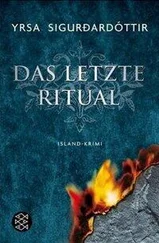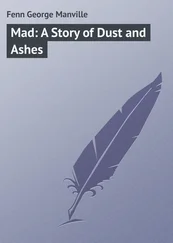Leifur gestured non-committally. ‘Of course I have,’ he replied. ‘I wish I could say I was able to come up with an explanation. I have no idea who these people were or how they ended up there, of all places. It does seem pretty obvious to me that they were foreigners, though. Four Icelanders could never have disappeared in the eruption without anyone noticing it.’
‘And were there any foreigners here at that time?’ asked Thóra. ‘And by “that time” I mean during the eruption, as well as before it started.’
‘Hmm,’ he mused. ‘Before the eruption there were always foreigners around, though not as many as now. They were mostly sailors and people working in the fishing industry, not tourists like they are these days.’ He smiled apologetically at Thóra. ‘I have to admit I don’t know whether any foreigners were here during the eruption itself. I suppose there were some who helped out during the rescue operation. Soldiers from the base, maybe.’
Thóra, who hadn’t thought of this, made a mental note to ask about disappearances from the Keflavik Naval Air Station at the time. She hoped that all the information hadn’t been spirited away on the departure of the Defence Force.
‘Would there be any way for me to speak to your father?’ she asked cautiously. ‘Maybe he still remembers this, even though the old days might be slipping from his memory?’
Leifur looked forlorn. ‘I’m afraid there wouldn’t be much point. Even though Dad has good days it’s been a long time since it was possible to have a decent conversation with him. He talks, but the words he strings together are usually meaningless and unrelated. Mum, on the other hand, is sharp as a tack.’ He regarded Thóra closely. ‘What are you getting at? Do you think my father had something to do with this?’
To Thóra’s relief Leifur did not appear to be angry, just curious. ‘No, not necessarily.I was hoping he could give me some information about people’s visits to your house, or hazard a guess at who the bodies belonged to,’ she said. ‘It’s reasonable to suppose he would have paid closer attention to his own house. The other rescue workers no doubt had less interest in it.’
‘That’s a good point,’ said Leifur. ‘But he won’t be able to help you. It’s a shame. Mum won’t be much help either, since she wasn’t here doing salvage work. However, she may remember something about any foreigners in the area just before the eruption.’ He shook his head. ‘I don’t know what else she might know. It may be that she doesn’t remember a single thing about any of it. It’s been decades. I can only remember bits and pieces myself.’
A faint smell of smoke drifted in, and Bella wriggled in her seat. ‘Can I smoke here?’ she asked hopefully.
‘Maria smokes in the kitchen,’ he replied, and waved Bella to the kitchen door. ‘Please. She’ll be delighted to have company.’ Bella did not need to be told twice.
‘Did you not know Alda at all?’Thóra asked after Bella had left. ‘She appears to be a key player in all of this if your brother’s story about where he got the severed head holds up. My instinct tells me that the corpses and the head are two branches of the same story. Anything else would be too much of a coincidence.’
‘I agree with you there,’ replied Leifur. ‘Unfortunately I didn’t know Alda at all well. Of course I knew who she was, and there was quite a lot of contact between our parents in those days; but as I told you, she was younger than me, so 1 didn’t pay much attention to her. After we went to the mainland the friendship between our parents pretty much fizzled out. They moved to the Westfjords, if I remember correctly, while my father kept on fishing in the South.’
‘But doesn’t her mother live here in the Islands?’ asked Thóra. ‘That was my understanding from Kjartan at the harbour-master’s office, and he also said her father died recently.’ She added in explanation: ‘I met Kjartan yesterday at Markus’ suggestion.’
Leifur nodded. ‘As I said, I know that Jóhanna, Alda’s sister, still lives here, but I’m not certain about their mother. To tell the truth, there was no love lost between me and my father’s old friends. Especially not after I took over the business.’
‘Oh?’ responded Thóra.‘What happened?’
Leifur rolled his eyes, exasperated. ‘I thought Dad was much too sentimental about them. It was as if he felt he owed them something, particularly Geiri, Alda’s father, even though all of the negotiations were perfectly above board.’
‘Now I don’t understand,’she said. ‘What negotiations are you talking about?’
‘The purchase of the first ship,’replied Leifur. ‘They bought it in partnership, Dad and Geiri, Alda’s father. That’s how the company worked at first, it was co-owned by the two of them.’ He pointed out a painting of a ship hanging on the wall behind her. ‘That’s the boat, Strokkur VE, a hundred-ton motor trawler. The painting was in Dad’s office. I removed it when I took over, since to me it was so closely connected to him, and I wanted to make it clear to everyone that a new skipper was at the helm. I still wanted to be able to see it, just not at work.’ Leifur smiled. ‘It wouldn’t be considered an enormous ship today, but in its time people thought it was quite something.’ His expression was oddly proud and affectionate, although the painting couldn’t exactly be called a masterpiece.‘They hadn’t owned the ship for more than a year before the eruption, and Dad disagreed completely with Geiri over further operations. He wanted to keep the fishing company going after the eruption, but Geiri simply gave up and let Dad buy him out.’
‘I saw an old news report from the period about a trawler that had been sunk to collect insurance money,’said Thóra. ‘That suggests the industry hadn’t exactly been easy for everyone.’
‘Very true,’ said Leifur.‘It was terribly hard for a while. Luckily we never had to resort to the desperate measures you describe, but we were no doubt not far from it when things were at their worst.’
‘Was your father a wealthy man before he started the fishing operation?’ asked Thóra, turning from the painting to Leifur. ‘I know less than nothing about ships, but I expect they cost quite a bit.’
Leifur smiled. ‘No, he really wasn’t wealthy at all. He put everything he had into financing his half, and even that came nowhere near the total cost of the boat. He and Geiri took out a large loan to make the purchase, and mortgaged everything they owned. The ship also had a huge mortgage, of course. Because of that, Dad only needed to pay Geiri back what he’d contributed originally, but there was no profit foreseeable in the operation during those first few years and it was unclear whether it could keep going after the eruption. Part of the collateral disappeared with our house and that complicated the family’s finances a great deal.’ Leifur took a sip of wine. ‘But Dad didn’t give up even when things were going really badly; if anything, he became more enthusiastic. He managed to keep the ship, and trumped that by buying the only processing plant here at the harbour for peanuts, while the eruption was still happening. It had been written off by its former owners when he took the chance on it, but he got it going again, even before the eruption stopped. No one would have believed it when the deal was made, because at the time people thought all the property in the Westmann Islands would be worthless.’
‘How did your father actually pay his debts?’ asked Thóra. ‘Was it possible to fish, despite the disaster?’
‘The Westmann Islands fleet had a record catch that winter. Dad caught more fish than he ever had before, but he didn’t land his catches in the Islands until after he’d purchased the plant. Dad was hard-working, but he was also lucky. Good catches and inflation that ate up the loan over time helped him start raking it in. When the processing operation got off the ground, slowly but surely he was able to build up his own fleet of ships, and over time he added a trawler, then another and so forth. He also laid the foundations of the company as it exists today during the eruption. His boldness when everything appeared hopeless worked to make him wealthy, while his friend, who lost his courage during the hard times, was left behind with nothing to show for it.’
Читать дальше












